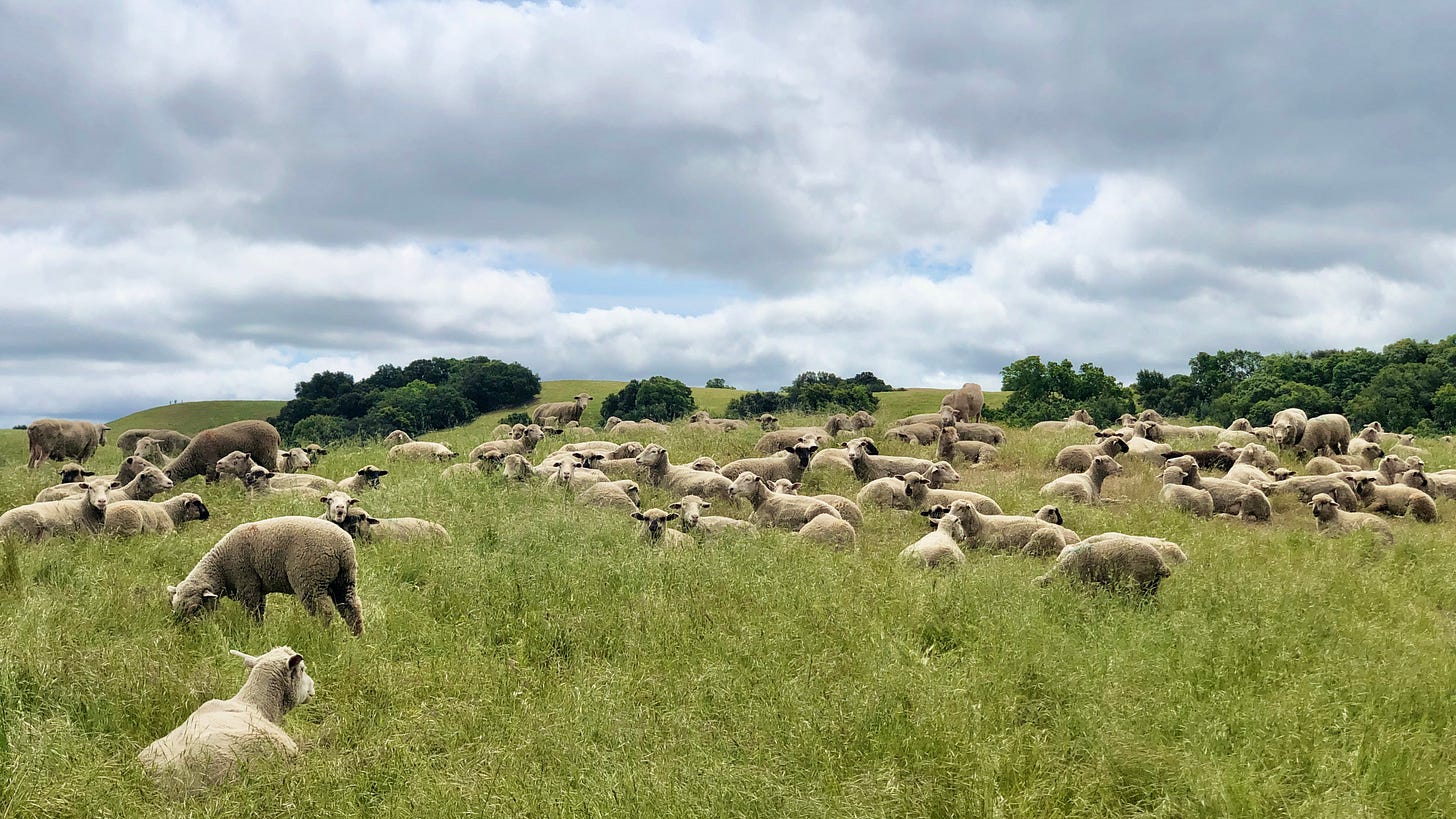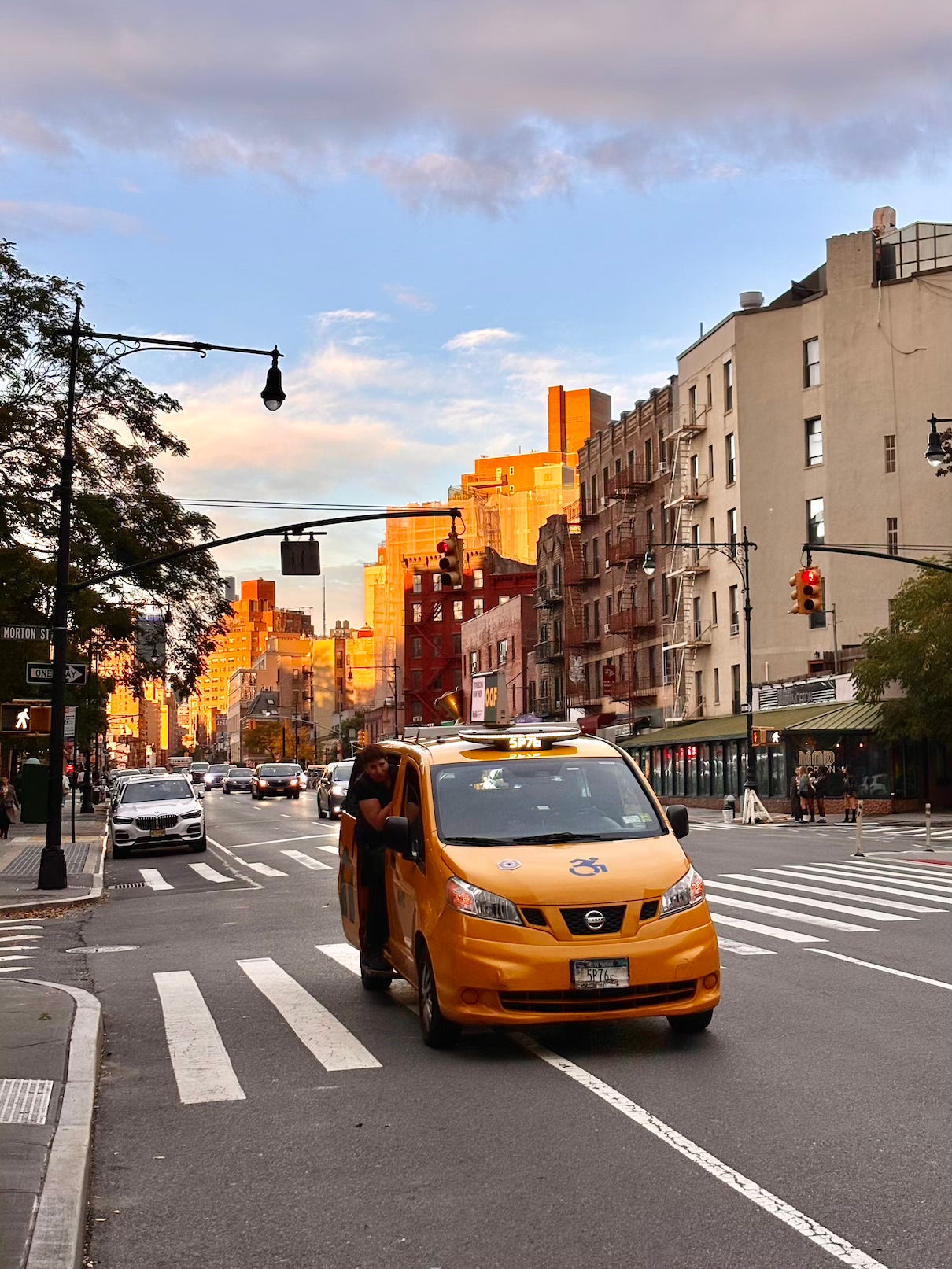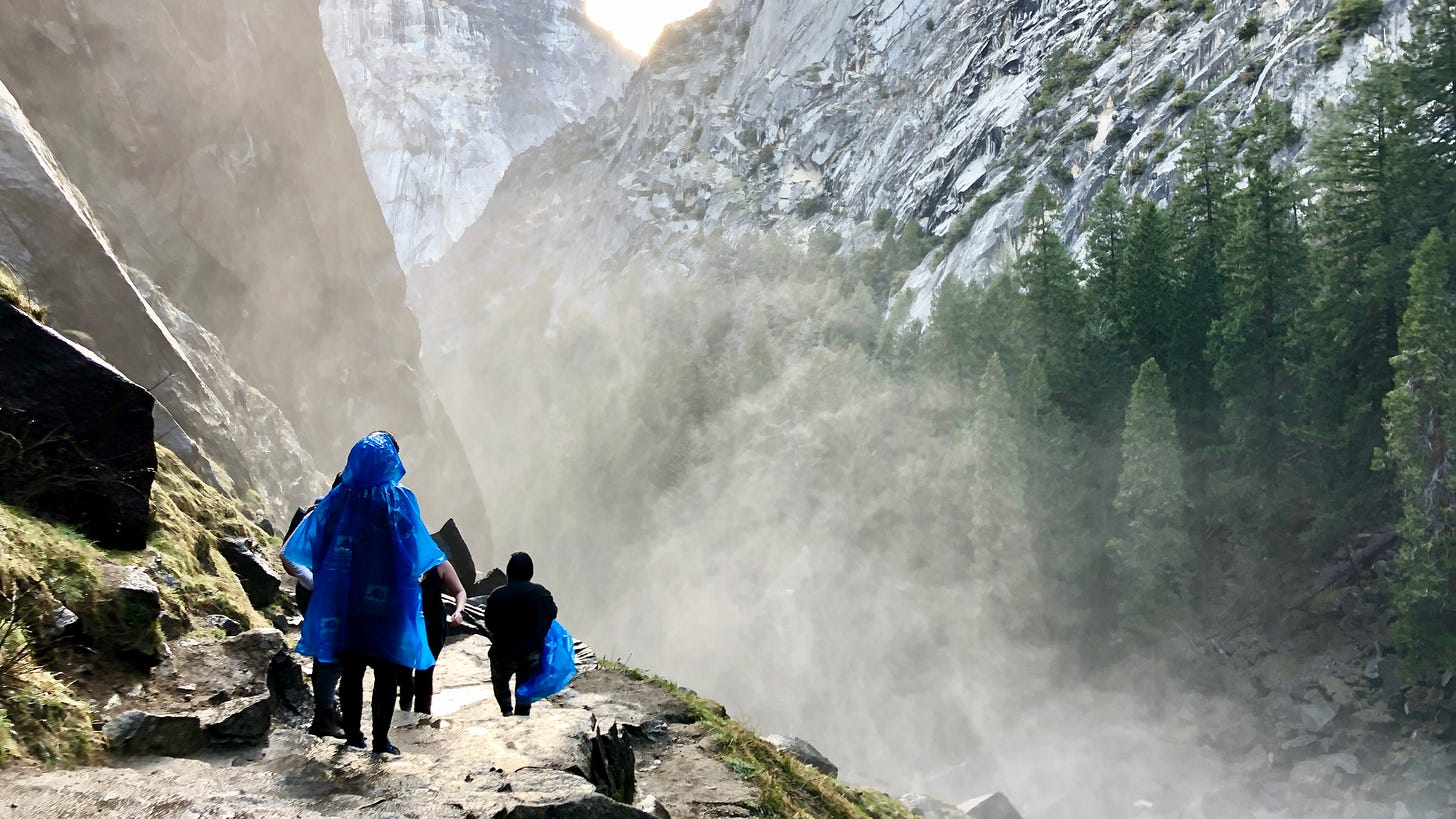What's Next?
"The great dream is to trade up from money to meaning."
I have distinct memories of when I’ve never felt happier or more content with life:
I’m five years old, and it’s my first month of school in Canada. The teacher takes us ice-skating on the Rideau Canal. My best friends are Dana from Ukraine and Durga from Nepal. None of us speak English well, but we link hands through our mittens as we fall and get up and melt into a puddle of giggles on the ice. We have class guinea pigs we feed and pet. We name the small one Peanut and the big one Butter.
School is the best, I tell my parents.
It’s 10pm on a summer night and I’m thirteen. My best friend Michelle and I sneak out of our houses to dance through sprinklers and jump off of swing sets—while somewhere in the distance, the lights of an airplane blink on and off, on and off. Michelle is moving back to Korea, but we promise to write and keep in touch. We’re finally the girls we’ve always wanted to be, apathetic and unafraid.
Sometimes shoes feel water logged even when they’re not.
It’s the week before college, and I’ve never seen so many stars in my life. The entire freshman class goes on upperclassmen-led outdoors trips, and after four days backpacking, swimming, climbing, and canoeing our way through nature, we gather on Mount Moosilauke. At 4,800 feet high and 2.5 hours away from the nearest big city, I see my first shooting star. Then another, and another, until I’ve lost count.
Suspension of disbelief for a two-hour movie, that’s what it felt like.
I’m on campus for sophomore summer and just finished my Studio Art final. The clock tower strikes midnight but my fire’s burning gold, and I know my best friend Elisabeth will be awake tackling Eng p-sets. I dash off a text. “Run?” “Right now?!” “Why not!” We’re invincible as we race past Occum Pond, through the golf course, circle the town, and make our way back to campus through the pre-morning mist.
Summer in New Hampshire tastes golden, I think.
And now.
Lately, I’m finally regaining the sense that I could be good at living life.
What this has looked like for me is:
Time autonomy. Day-to-day, I choose my schedule and set my hours. I’ve never slept and worked out more consistently. Turning my full attention to whoever I am with is one of my greatest joys, and I always have time for the people I love.
Geographic flexibility. If I can live and work from anywhere, why not be close to family? I love the idea of spending ski season in Colorado or working from Madeira for a month, but for now I’m relishing the feeling of being home.
Fewer, deeper friendships. I can name qualities in each of my friends that I intensely admire. They are the type of people who are there when it matters. Whether we’re 5 or 5,000 miles apart, we’re only ever 1 dial away.
The confidence to round down. Class has nothing to do with money, status, or achievement, and everything to do with affording grace to others. It’s the quiet confidence of knowing we could, but choosing not to flaunt it to the world.
What this doesn’t require, I’ve realized:
Being conventionally successful. I left The Path years ago, and used my college education to start a kid’s bear toy company. But nothing gives me more professional joy than hearing from customers in the wild.
Being in a relationship. My past two relationships helped me grow tremendously, but I hadn’t spent much time being single. The last two years have helped me define who I am in the absence of a partner, and the kind of life I wish to live.
Being right. I equate “right” with status games here, since much of what passes as conversation in pockets of Silicon Valley is really just thinly veiled peacocking. I try to stay off social media so I don’t get sucked into playing stupid games.
Being rich. Sadly, it looks like I’m not on the path to becoming a billionaire anytime soon for Alpacatraz to happen, so I’ve lowered my goalpost to being a thousandaire with a Spanish-style llama sanctuary by the sea.
So, what’s next?
“We have entered a new age of fulfillment,” says 21st-century Australian philosopher Roman Krznaric, “in which the great dream is to trade up from money to meaning.”
These days, I’m no longer trying to go faster in life, but optimizing around the edges. This ranges from the mundane (tax efficiency, cut drag) to the existential (downside protection, don’t blow up) to the day-to-day (setting up systems that bring me health, fulfillment, peace of mind with exposure to perpetual discomfort and growth).
I’m also slower to accept opportunities, because few things will actually move the needle—but many more threaten to warp my desires and numb my ability to discern what is good and right for me. The only immediate yes’s are situations where I can see a clear “heads we win, tails we still win” path. Few meet that bar.
Finally, I’m thinking a lot about relationship compounding. A good relationship, like great parenting, is clearest in retrospect. It can take years, if not decades, to see how a thesis plays out. As with financial compounding, most of the benefit comes at the end.
But how do we know if we’re making the right choice?
I don’t think we can. None of us can.
We simply watch the water plummet down like a shot of cold, where mist scatters into the air, and we vow to take that same leap of faith together. Then we make it the right choice—consistently, over a lifetime, without expecting perfection.





